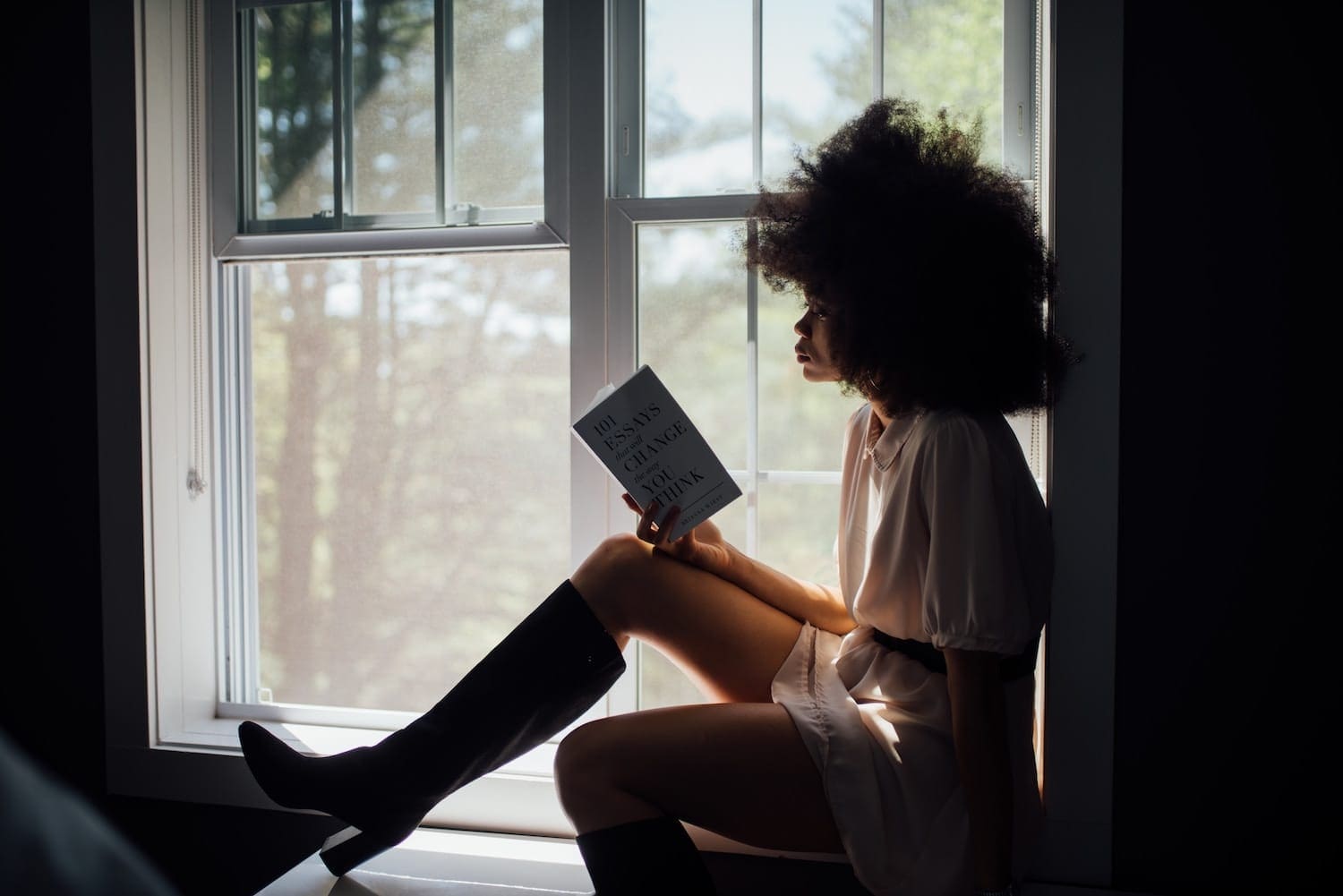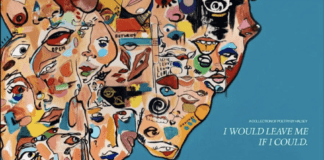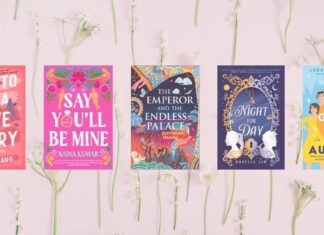
Read poetry… and fall in love with the process.
A lot of people have internalized that idea that poetry isn’t for everyone, that it must be arduous, and that it must have some definitive answer or meaning. “But what does it mean,” people always ask me.
And I always say, “Well, what do you feel?”
Meaning isn’t the end-goal with poetry. It’s the process that matters, and I think it’s easy to lose sight of this. We also tend to equate poetry with academia, studying, the dusty shelves of a time gone by. But poetry, which you know, of course, is far, far from dead. And it’s far from stuffy. Modern poets are everywhere, carving a space for this ‘high art’ in the everyday.
Warsan Shire wrote the poetry featured in Beyoncé’s Lemonade, Tracy K. Smith’s poetry collection Life on Mars won the prestigious Pulitzer Prize, and Noor Unnahar’s Find Your Voice: A Guided Poetry Journal for Your Heart and Your Art is sitting on shelves in your local Urban Outfitters.
“Poetry is the stuff of liminality, of mystery, and of truth. It’s part craft, part magic. There’s something divine about it — that it’s made from a place in the soul that is generated by complex feelings, secrets, confessions, and shadows.”
Of course, the poets who paved the way for modern poetry’s legacy of bravery, resilience, and creativity are still our patron saints. We bow down to Sylvia Plath, Emily Dickinson, Pablo Neruda, Chinua Achebe, Liu Xiaobo, John Keats, Maya Angelou, Mary Oliver, Lucille Clifton — and so many more.
Here’s my breakdown for you on how to read — and delight in — a poem:
Know that not everything needs to mean something.
Poetry is the stuff of liminality, of mystery, and of truth. It’s part-craft, part-magic. There’s something divine about it — that it’s made from a place in the soul that is generated by complex feelings, secrets, confessions, and shadows. There’s something freeing about reading a poem and falling in love with its language, even if you can’t quite grip its meaning.
Poetry often requires you to step outside your comfort zone — and that’s a good thing. That’s the privilege of being alive! Something doesn’t have to be easy to be enjoyable. In fact, throwing yourself into the abyss (and making the poem mean something to you — even if it isn’t what the poet’s meaning was intended to be — is the goal).
I know, god forbid those stuffy professors know that we interpret poems in our own ways! That’s the point. It’s art. It’s a little moment of beauty. It’s for you.
If you come up against something that seems unclear, fall into it. Are there clues? Words? Colors? Is there a tone or a mood? Is there a feeling you get that goes beyond what the words are saying to you? You’re doing it right.
Try everything once.
As the poet Johannes Göransson writes, “Not all poems prioritize everyday language. Some poems value arguments and narrative above the experience of language. Sometimes poems have mystical meanings.”
Depending on the kind of poetry you read you’re going to have a difference experience — and that’s good. That’s how you learn what works for you and what doesn’t. The only thing I ask is that you give different kinds of poetry a chance. There are hundreds of years of work out there; consume it. Read poets from different cultures. Go beyond Instagram. Wander the shelves in your library. Try out samples on your e-reader. (Some of them are even free!)
Print out and mark up your poetry
This may be a
Which words stand out to you? Is there a theme that has been repeated? Are there colors — and if so, what could they mean? Is the use of “red” angry or sensual? Is the use of “blue” distant, dead, or sad? Are there word you don’t know? Look them up. Are there words that sound beautiful and evocative to you? Why is that? Why would the poem use them — and what are they doing for you?
Honor the poem’s intentions as much as you honor your own relationship to it.
You don’t owe a poem anything besides your attention. You don’t have to like it. You don’t have to dislike it. You simply have to experience it.
Maybe you do fall in love with it — and maybe that’s because it reminds you of something, gives you some strange truth, or opens up a new realm. If this is you, let go of the idea that reading poetry is something reserved for poets or academics, and simply experience the poem.
What it does for you is much more important than what it is doing in general. If it leaves you feeling unsettled, confused, sensual, or alive — lean into that. Why? Come back to it later. Invite it into your world and let it rattle around in there.
Read a poem three times a day, in between your activities.
Reading a poem three times a day is a good way to get started. I know that seems arbitrary, and maybe it is. But I also find that this builds ritual and brain muscle.
I’d suggest visiting the Poetry Foundation and perusing their poems by school of poet (like Victorian or confessional), poet’s region, the topic of poetry (like love or illness) or the form (forms are the style in which they’re written, like a haiku or a couplet).
Read while you’re brushing your teeth. Read while your lounging in the bath. Read while you’re on the subway. Red while you grab a morning coffee or afternoon snack.
Build poems into your daily ritual and you’ll open up new worlds, sounds, and memories. Be okay with the mystery. Appreciate the few moments it gives you to explore new worlds outside your own creative self.
Photo by Thought Catalog on Unsplash














